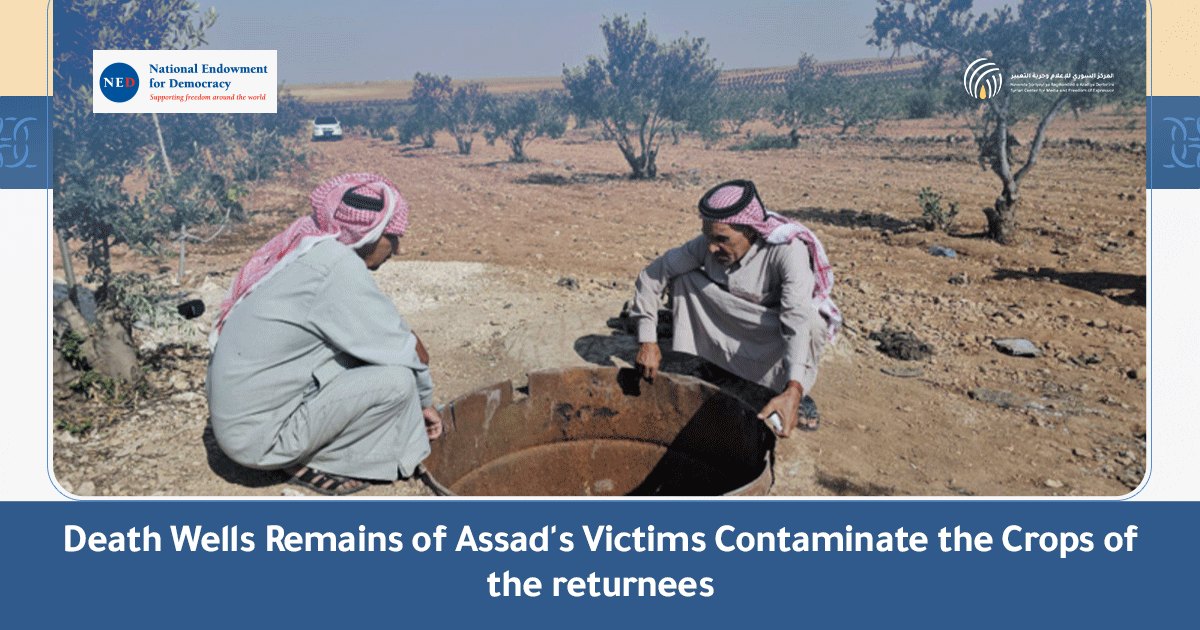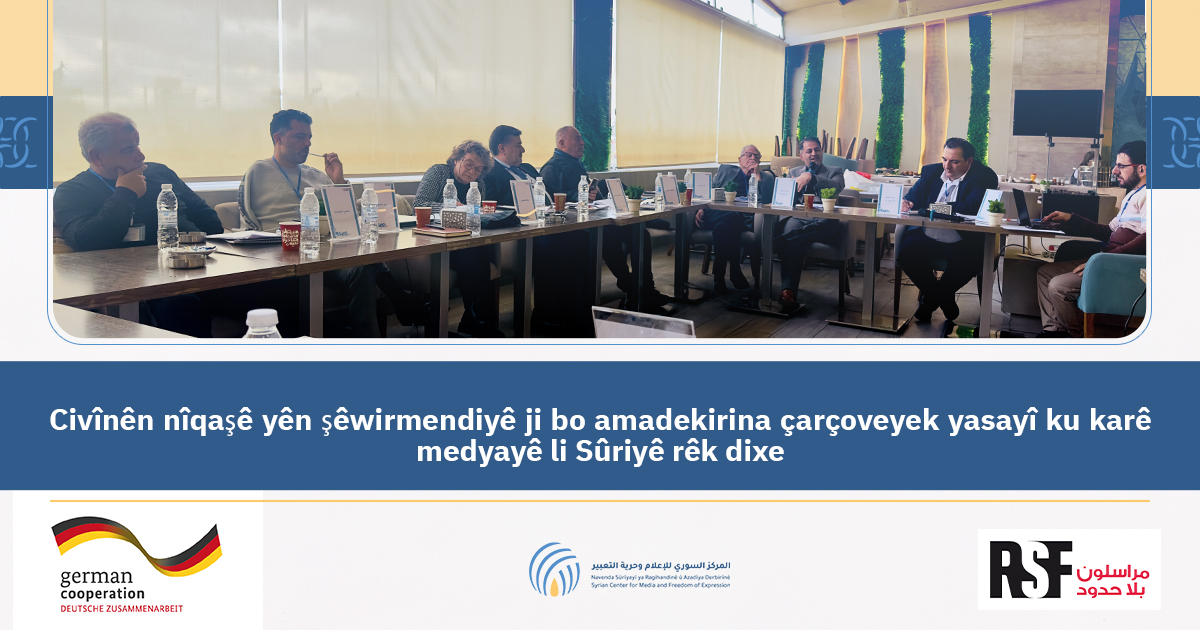80% of women suffer from malnutrition in the camps… Syrian women live the verge of death!
On the verge of death: Mothers suffering from malnutrition and fetuses that never see the light
Simav Hasan and Ranim Khallouf
Montaha Al-Hamdo, 17 years old, who lives in Washo Kani camp for the displaced from Ras Al-Ain, did not know that she would not be able to choose a name for her newborn, or perhaps she chose the name in secret and left for her final resting place last May of this year without seeing it even once. Perhaps the mother’s heart made her feel it only after the soul left the body, as in the same month the signs of premature birth began to appear on the young girl, who was in her eighth month, which coincided with May 2024 on the Gregorian calendar, so she visited the nearest medical point in the camp, and it turned out that she needed intensive care, as a result of a case of premature birth, so the birth cases were referred to Al-Aziziyah Hospital, which is about 25 minutes away from the camp.Bushra Al-Aidan, the deceased’s cousin and companion who lives in the same camp, says: “Muntaha’s diet during pregnancy depended mainly on legumes and vegetables that were distributed to the camp’s residents as part of one of the food basket support programs provided by Global Communities. The doctors decided that the birth would be by caesarean section due to a hole in her heart, but she was born naturally and died during birth. The doctors attributed the death to a lack of oxygen and severe malnutrition, in addition to an enlarged heart that led to her death. The child lived for 20 days in the incubator and his health improved, before returning to the camp without a mother, according to Bushra. Washokani camp, one of 7 informal camps in North and East Syria, is home to 16,096 individuals, according to the latest figures from the Sites & Settlements Working Group in its September 2024 report based on updates from camp management agencies, NGO partners and sector working groups. The report notes a gap in the referral pathway to hospitals and in the referral of emergency cases to hospitals in Al-Hasakeh.
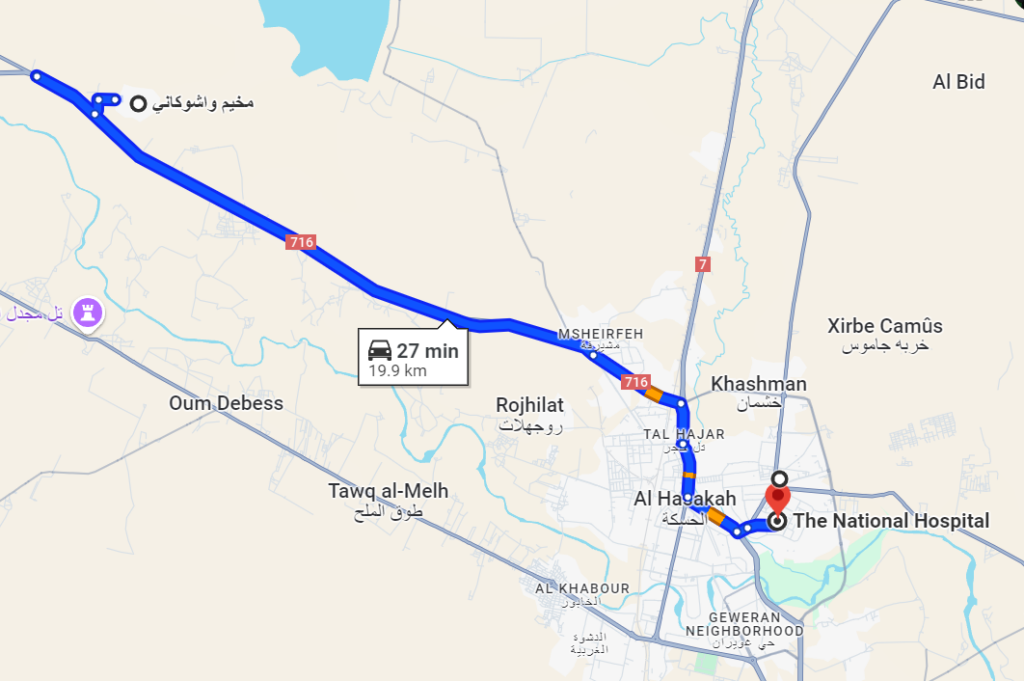
A map showing the distance between Washokani camp and the nearest hospital, which is Al-Aziziyah Hospital in Al-Hasakah, to which maternity cases are referred – Google Map
On the other hand, according to the Syrian Dialogue Center, which conducted an exploratory paper in December 2021 entitled “Without Curtains, Without Protection: The Hidden Side of Women’s Lives in the Camps,” 37% of mothers in Syrian camps suffer from malnutrition. The high birth rates observed in the camps and the frequent and close pregnancies also affect women’s health, especially with the lack of any medical or gynecological care in the camps, and the inability of medical centers to provide services as required. According to the website of the United Nations Children’s Fund (UNICEF), a woman dies every two minutes due to pregnancy or childbirth, indicating a significant decline in maternal health around the world and their inability to access the necessary health care. Maternal deaths are still largely concentrated in the poorest parts of the world and in countries affected by conflicts, including Syria. This applies to the areas of northwestern Syria, which are witnessing a weakness in the health system after 12 years of bombing, military operations and displacement, and “unfavorable” conditions for pregnant women, especially in camps, while pregnant and breastfeeding mothers show record levels of severe emaciation, according to information published by the official website of the United Nations in 2022.
To further investigate the issue of food security for women in the camps and its impact on their reproductive health, the researchers of the investigation team distributed 100 electronic forms to women in the camps (Washokani, northeastern Syria, and Talmans camp, northwestern Syria). The form contained a set of closed and open questions to reach percentage results and ratios. Graphic and realistic stories at the same time through some open questions, as it is a way through which answers can be reached and at the same time does not expose the researchers to the danger of the camps and those who control them. The distribution took place during the month of August 2024.
Either death or illness, there is no third option!
The media constantly presents topics related to sexual and reproductive health in displacement camps in Syria in general, and in the north and northeast of the country in particular. In a report issued by Syria TV, based in Istanbul, it addressed the topic of The absence of reproductive care haunts women in the camps of northern Syria. The report indicated that 87% of the camps suffer from a lack of medical points and mobile clinics, which makes it difficult to obtain the necessary health care. The report also focused on the importance of pregnant women addressing the issue of healthy and safe food as a fundamental point for reproductive health. In this context, Dr. Iyas Othman from Damascus, a specialist in obstetrics and gynecology, spoke to the Syrian Center for Media and Freedom of Expression, saying:
Lack of attention to good nutrition for the mother during pregnancy may negatively affect the health of the mother or the fetus, and the mother suffers from several diseases, the most important of which are severe anemia, bleeding, deaths, low birth weight, emaciation, delayed child growth, and stillbirth.” Othman confirmed that malnutrition in the mother is an important factor that contributes to spontaneous abortion by changing the morphology of cells. However, the relationship between Maternal nutrition and spontaneous abortion are complex and influenced by many biological, social, economic and lifestyle factors, which vary greatly in different populations.
Nutritionist Rawaa Al-Tujar spoke to the Syrian Center for Media and Freedom of Expression about a group of foods and minerals that mothers should eat and emphasized the diversity of their plant and animal sources:
In the first place is calcium found in milk and its derivatives, plant and animal protein found in meat and nuts, and starches such as rice and bulgur. The nutritionist warned against eating processed sugars, and emphasized natural sugars such as natural fruits, and she agreed with the gynecologist that the absence of any of these types exposes her to reproductive health risks for her and the fetus together.
The results of the questionnaire distributed by the report’s authors to 100 women aged between 15 and 40 in the two camps mentioned above, were shocking, as 83% of the women who participated in the questionnaire indicated that they did not receive all types of food during pregnancy, and the percentages were close between those who received and did not receive nutritional supplements, and this affected their reproductive health according to the results shown in the graphs:

Did you receive all types of food during pregnancy?

Did you receive nutritional supplements during pregnancy?
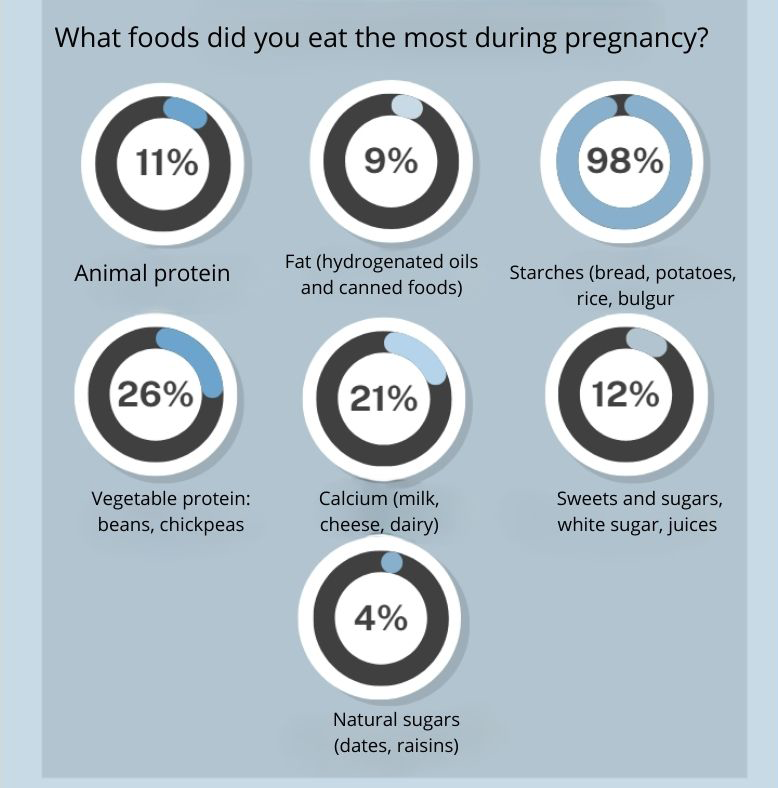

Did you have risks of premature birth?
The results show, in agreement with the doctors’ statements, that more than half of the women in Washokani and Talmans camps in the northeast and northwest of the country suffer from severe malnutrition, which negatively affects their reproductive health and exposes them to death and disease.
In the words of eyewitnesses… Suffering in bulk!
One of the women who participated in the survey lost three of her fetuses due to severe malnutrition that the fetuses suffered from and recently miscarried for the same reason. The woman who lives in Washokani camp relied on starch as a diet and said that she did not receive any foods or food baskets for pregnant women according to her answers to the survey.
The Ministry of Health in the areas controlled by the former regime government does not have any information about the camps, and a source who refused to be named told the report’s authors that they only care about the areas controlled by the government, and that international organizations are doing their utmost to secure everything related to reproductive health, whether food, supplements or treatment. There are many mobile clinics in the places to which their people have returned, and which were the scene of clashes in the war, and he mentioned the Palestinian Yarmouk camp as an example.
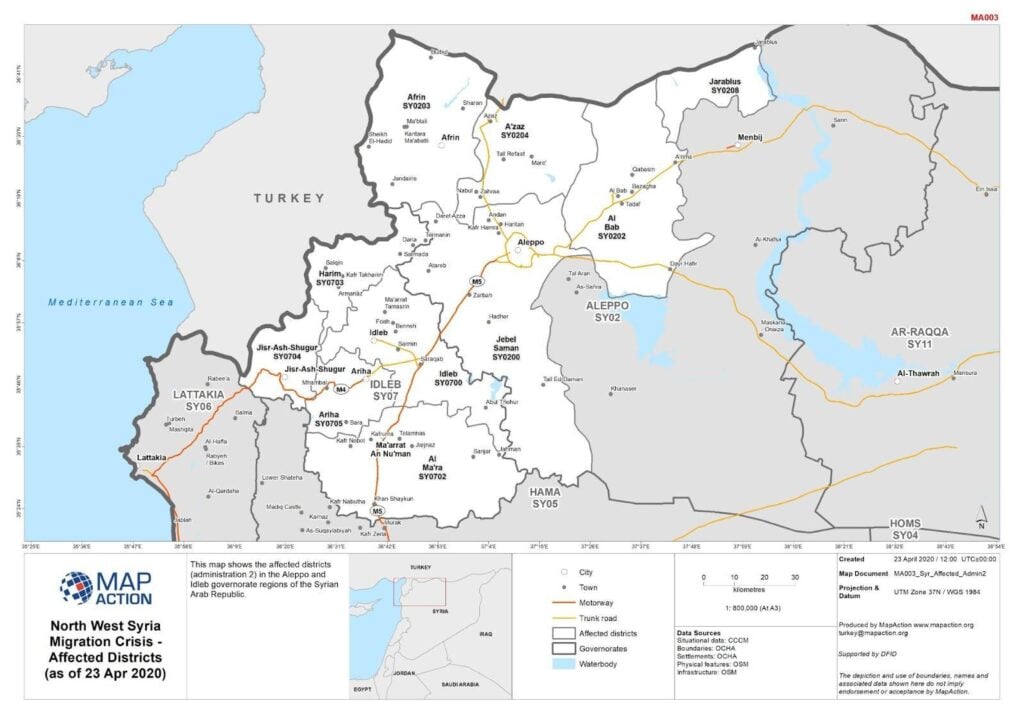
Map of camps in northwestern Syria (Source: Map Action) May 2020
While the camps in the north and north-east suffer from health massacres according to eyewitnesses and activists in the camps, Jumana Al-Abdullah, leader of a team to spread awareness in all the camps in northern Syria, says:
The most prominent suffering of the camps in the north is the lack of nearby medical points, as the nearest medical point is 8 km away. Women in the camps are also ignorant of reproductive health issues despite the many attempts at awareness campaigns, but society and its ideas are the dominant ones.
Jumana’s testimony intersects with that of Nora Khalil, an activist working in the camps of northeastern Syria, who says: “It cannot be said that aid related to women is non-existent.” Rather, the most accurate description, according to the two activists, is that it is “little or very little.” Khalil points to a number of diseases that women suffer from in the camps of northeastern and northern Syria as well, namely:
anemia, malnutrition that affects the health of the fetus and the mother together, as a result of the lack of balanced food and suffering from a deficiency of essential vitamins and minerals, bleeding, uterine prolapse, in addition to many psychological and physical diseases related to hygiene factors and the social situation in the camps.”
Abdul Hamid Ali (a pseudonym), 35 years old, a feminist activist in a civil organization that provides care services in the camps of northwestern Syria, notes: “The repercussions of all these health crises related to malnutrition and emaciation are directly reflected in the reproductive health of the child, which deprives him of breastfeeding.” He continues, saying:
Organizations strive to provide the basic requirements for women in the camps according to the conditions that this camp lives in or complies with. In light of the basic needs, the supplies are secured. The main services for women, such as tents, clothing, food, and some medical care, in addition to providing care and psychological and social support services, according to the programs that are being adopted. There are programs dedicated to the reproductive health department and maternal and child care, but it is clear that they are not sufficient and do not meet all needs, according to the cases that have been monitored in the camp. The organizations that work in the field of reproductive health and provide food security services for pregnant women are often limited and temporary, limited to distributing malabsorption foods, complementary medicines, and health baskets, the role of which ends after birth.
The situation in the official camps in northeastern Syria supported by United Nations agencies is no different from the situation in the informal camps. The latest report issued by Sites & Settlements Working Group indicates a gap in providing food rations for pregnant women in Al-Areesha camp, which was a refuge for 2,690 families of displaced people from Deir Ezzor who fled ISIS since 2016. “Pregnant women often rely on the contents of food baskets, while orange butter, which is an approved nutritional supplement, is provided to women suffering from malnutrition, but most of them resort to selling it for 4,500 Syrian pounds per bag,” says Maryam Hassan (a pseudonym for a civil activist working in an organization that provides services in Al-Areesha camp). She adds:
The number of pregnant women suffering from severe malnutrition who are registered with the World Food Program and the Kurdish Red Crescent amounts to more than 79 women. The total number is higher because some women do not visit medical points and reproductive health points, and others receive treatment from other cross-border organizations.
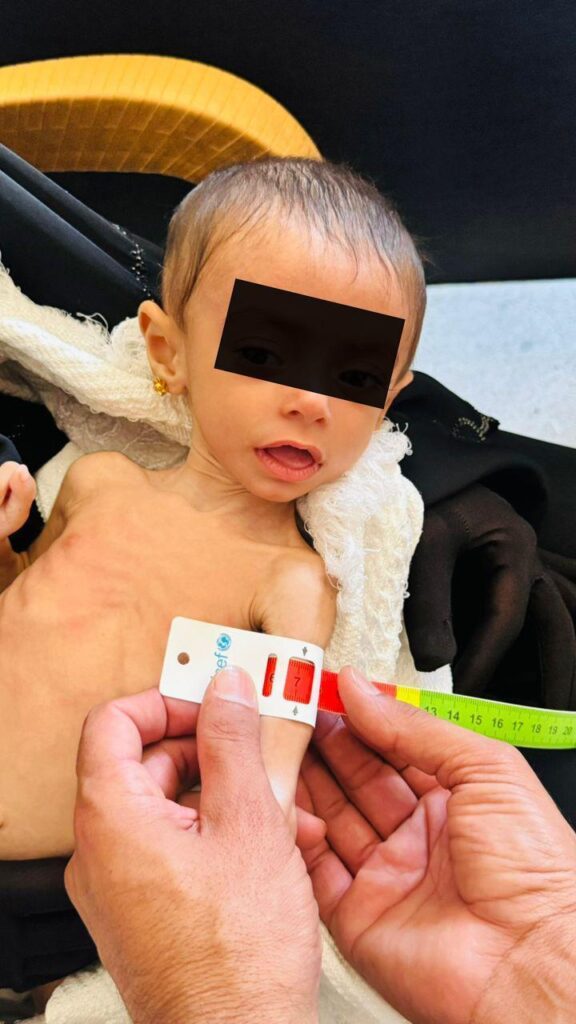
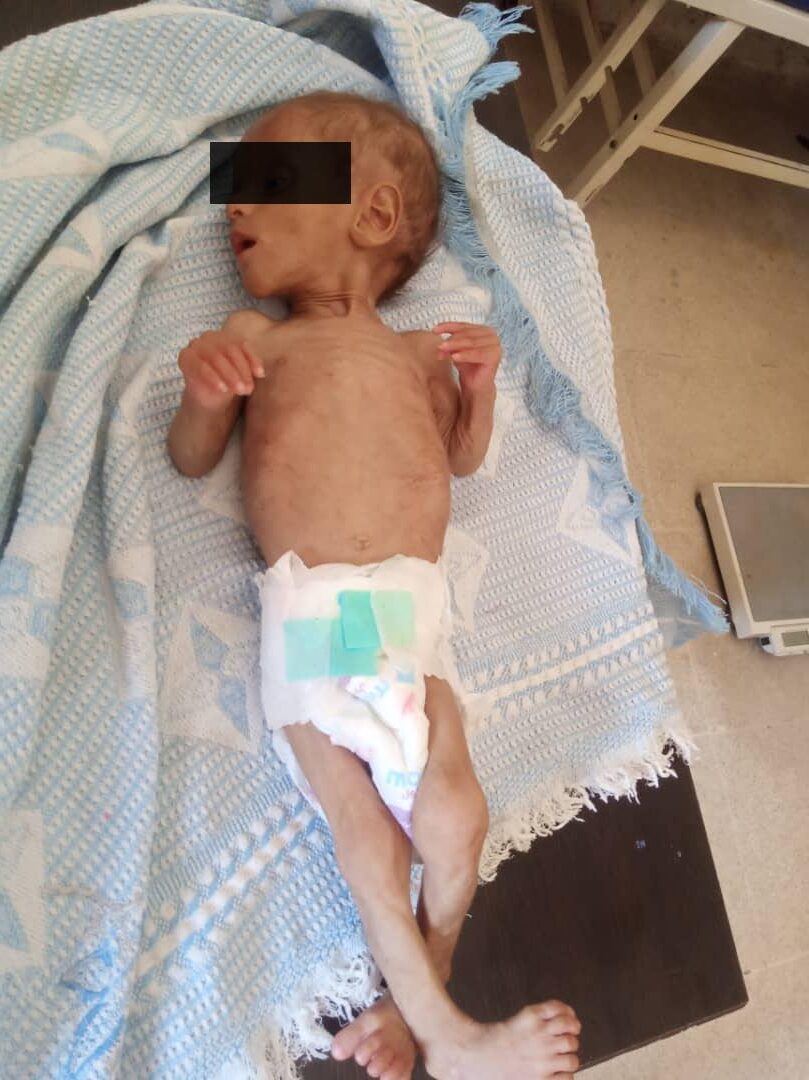
An exclusive photo shows two children suffering from severe malnutrition at one of the medical points in Al-Areesha camp (6 October 2024) Maryam Hasan, civil activist.
Shocking numbers!
The eyewitness accounts in the camps are consistent with the results of the questionnaire distributed by the report’s authors to women in the two camps, which were a deliberate sample (purposive sample) in the investigation. The results indicated that the majority of women suffered from postpartum illnesses, the most important of which were malnutrition, infections, and adhesions in the uterus, and the birth of very low-weight children. They confirmed that the nearest medical care center is half an hour away from the camp. This information was confirmed by the Syrian Response Coordinators organization, which specializes in collecting information and statistics in the regions of northwestern Syria, which said in a statement published in May of this year that “more than 87 percent of the camps suffer from a lack of medical points and mobile clinics.” The organization stressed the difficulty of transporting patients to nearby hospitals, especially since the financial situation of most of the displaced remains poor, and they are unable to secure the treatment required for medical cases without exception, while the organization had previously announced in May of this year that 89.3% of the camps in northern Syria suffer from food insecurity and “96.4% of them suffer from difficulties in securing bread.”
The following results illustrate a set of figures that show women’s suffering in food security and their reproductive health.
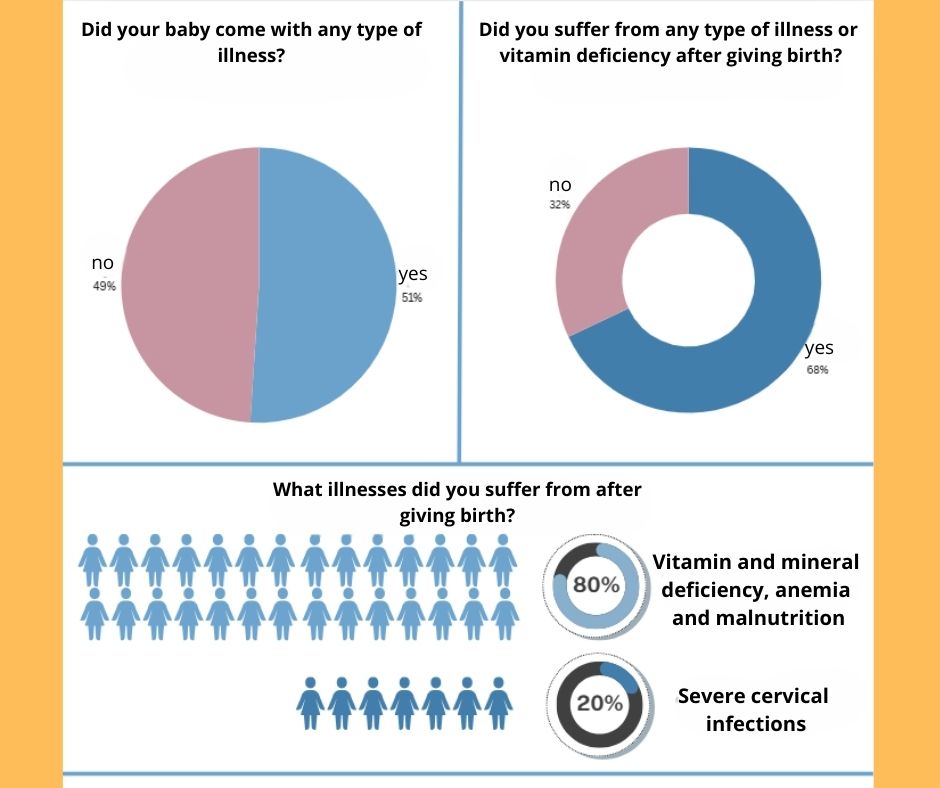
When the malnutrition rate reaches 80% in a small sample in two camps, the indicators predict a catastrophe that has occurred. How many mothers and children are at risk of death due to the lack of food security? OCHA reports indicated that northwest Syria has witnessed a significant increase in malnutrition rates, as the prevalence of global acute malnutrition (GAM) rose to nearly five percent in 2023, which represents a three-fold increase since 2019. Today, 9 out of 10 children in Syria do not eat a minimum acceptable diet, leading to stunting and wasting. More than 500,000 children under the age of five in Idlib and the northern countryside of Aleppo are in urgent need of treatment for acute malnutrition, and nearly 108,000 children suffer from severe wasting. The situation is exacerbated by the spread of diseases, limited sanitation services, and food shortages. So, what disasters await women and children in Syria?
This investigation is part of a project carried out by the Syrian Center for Media and Freedom of Expression. It was published in “Suwar ” Magazine on February 1, 2025, under the supervision of Dr. Mona Abdelmaksoud.




